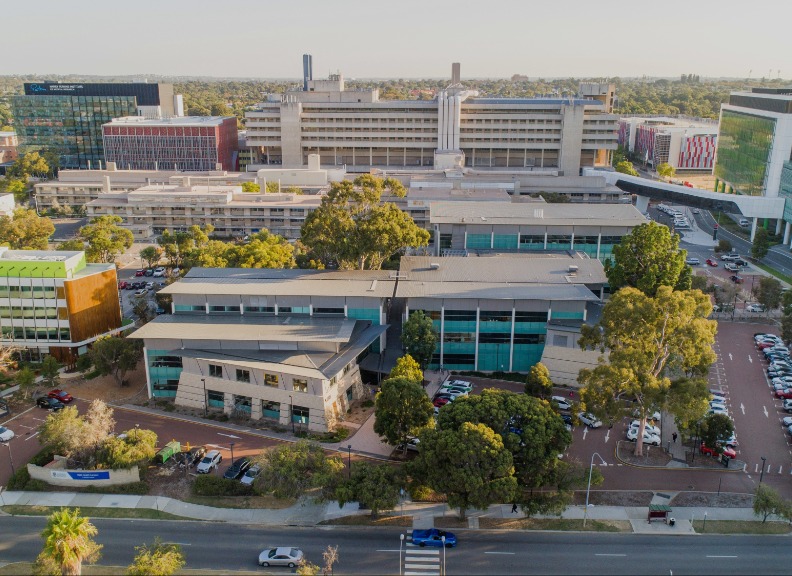Addiction medicine and associated morbidity
Treating substance dependence
From the quick-start cup of coffee and celebratory glass of wine, to the pain and pleasure of injecting crushed morphine tablets — everyone takes drugs in one way or another. Drugs have attracted much interest, symbolic meanings, desire and fear throughout history. It is Nietzsche who said “the whole history of narcotica...is almost the history of culture, of our so-called higher culture".
Drug use is an integral part of human existence and is here to stay. Understanding drugs is about understanding us, our histories and traditions, our makeup and our desires. It is also about an increasingly sophisticated scientific understanding of brain chemistry and behaviour. People take drugs because they like what they do to their brain – even if only very briefly.
This area of study is rife with contradictions and paradox. Some substances, which almost half the population have used, are illegal. At the same time, some legal drugs that cost our community billions of dollars annually are ‘permitted’ sophisticated advertising and promotion and we, through our governments, depend on taxation associated with them for substantial revenue.
As science research deepens, there is greater understanding of how drugs act on the human body. At a cellular or even molecular level, it is possible to pinpoint the actual sites of action and change in function of brain processes. With this knowledge it is possible to find pharmacological therapies to block or change specific actions of a drug or provide less harmful substitutes for specific drugs or to contribute to promising new drug treatments.
In 2016, around 3.1 million Australians reported using an illicit drug.
Related projects
- Comparing the clinical efficacy of implant in the management of amphetamine use
-
Amphetamine use is a growing concern for governments around the world but until a Swedish group reported positive results with oral-naltrexone, no medication had been reported as effective against amphetamine/ICE dependence. Since then, similar positive outcomes have been reported with the Australian naltrexone implant.
This current study is extending these research findings by randomising treatment-seeking amphetamine/ICE abuse patients to a six-month treatment with the Australian naltrexone implant plus counselling, or counselling only.
The study will not only focus on efficacy, but also cost savings. This data will be of significant interest to the federal government and its National ICE Taskforce, as there is currently no pharmacotherapy treatment available for the management of amphetamine/ICE.
This study aims to show that use of amphetamine/ICE and associated hospital emergency and inpatients admissions can be significantly reduced by treatment with sustained release naltrexone, translating into significant cost savings for the WA health department.
We will measure amphetamine/ICE use (self-reported and urinalysis), returning to regular use to six-months in the two treatment groups, and associated hospital and emergency use before and after treatment using hospital electronic data systems.
We will also collect data to underpin future cost effectiveness analysis. Study data will act as a ‘proof of concept’ underpinning an application to the National Health and Medical Research Council to conduct an appropriately powered double blind cost trial.
The research team for this project includes Professor Gary Hulse, Professor Elizabeth Geelhoed and Associate Professor Kellie Bennett. The project is run in collaboration with Fresh Start Recovery Program.
We are recruiting participants for this trial and for more information, contact Chantelle Kerr at Fresh Start Recovery Programme on (08) 9381 1333.
PhD opportunities exist in the areas of both clinical assessment in management of problem amphetamine use, and economic cost effective assessment. For more information, contact Professor Gary Hulse.
- Genetics epigenetics and cellular function
-
Our group is investigating potential of emerging genetic, epigenetic and cellular markers such as glycosylation and metalation that are associated with the emergence of substance use, treatment, and the development of age related ill-health.
There is significant cross-talk between epigenomic and glycobiological regulatory systems but both areas also touch on other fields such as the development of age related morbidity.The aim of this project is to identify at risk population to problem substance use, decide on personalised medications for these groups and identify antecedents of increased age related ill health and preventive measures.
The research team consists of Professor Gary Hulse and Associate Professor Jerzy Kulski from UWA, and Doctor Albert Reece and Professor Wei Wang from Edith Cowan University.PhD opportunities exist in the areas of genetics, epigenetics and cellular function associated with substance use in different ethnic populations and their relationship to ill-health, and development of personalised treatments.
For more information, contact Professor Gary Hulse. - Nasal naloxone and flumazenil effects on cigarette and cannabis craving and abstinence
-
Flumazenil has been reported to reduce feeling of anxiety in between cigarettes, while naloxone has been shown to have anti-craving effects. This had led to the development of a pulsatile fast-acting delivery system for flumazenil and naloxone which may be administered at the time of craving.
It is hypothesised that this pharmacotherapy will provide immediate relieve of withdrawal cravings and anxiety which are normally a precursor to on-going smoking, therefore increasing the rates of success for people trying to quit smoking cigarettes.
Participants are required have two separate three-day smoke-free periods, one week apart, using a different nasal spray each time, with a 4-day 'washout' period in between.
Active and placebo medication is alternated each week. The spray is to be administered 'as required' for relief of craving and anxiety, up to half-hourly and the daily dose will be recorded based on participants’ frequency of use.
We are collaborating with the Fresh Start Recovery Program for this trial, and our research team includes Professor Gary Hulse, Associate Professor George O’Neil and Ms Chantelle Kerr.
We are recruiting trial participants for the cannabis arm of this study only. Contact Chantelle Kerr at Fresh Start Recovery Programme on (08) 9381 1333 for more information.
- The role of flumazenil infusion in the treatment of alcohol withdrawal
-
Alcohol detoxification is associated with a range of withdrawal symptoms, ranging from headaches and nausea, to anxiety and potential seizures.
Typically, relief for these withdrawal symptoms involves treatment with benzodiazepines, which come with their own set of associated risks, such as dependence and cognitive and psychomotor impairment.
Flumazenil, conventionally viewed as a benzodiazepine antagonist with agonist actions, at low doses has demonstrated as a potential as a tool to assist both alcohol and benzodiazepine withdrawal.
This project involves three trials using varying rates of medication by infusion and orally, with the aim of assessing the efficacy and safety of low-dose flumazenil infusion administered subcutaneously as an option for detoxification from alcohol.
We will also explore the role of flumazenil-assisted alcohol withdrawal in maintaining abstinence post-withdrawal.
Our project team consists of Professor Gary Hulse, Professor Elizabeth Geelhoed, Associate Professor Kellie Bennett, along with collaborations with the Fresh Start Recovery Program and GoMedical Industries.
We are currently recruiting trial participants. For more information, contact Chantelle Kerr at the Fresh Start Recovery Program on (08) 9381 1333.
- The role of flumazenil infusion in the treatment of benzodiazepine withdrawal
-
Benzodiazepines are commonly prescribed for anxiety and sleeping difficulties, despite their high risk for dependence. Withdrawal symptoms include anxiety, tremors, sweating, nausea, headaches, cognitive difficulty, poor memory, muscle pain and potentially seizures and hallucinations.
The current first-line treatment for benzodiazepine dependence involves gradual dose reduction so as to avoid sudden onset of withdrawal symptoms. However, this therapy can take a very long time and the success rate is low. Flumazenil, conventionally viewed as a benzodiazepine antagonist at low doses, has demonstrated a potential for treating benzodiazepine withdrawal syndrome.
The treatment phase of this trial will run for 16 consecutive days, during which participants will be administered a personalised dosage of oral diazepam. This approach allows for a gradual, symptom-triggered taper from benzodiazepines.
Participants will receive subcutaneous flumazenil infusion during either the first or second 8-day period of treatment, based on a randomised, double-blind, placebo-controlled design.
An identical saline placebo infusion will be administered on the alternate eight days of treatment, with no washout period between.
Participants are required to attend a day clinic for assessment by a doctor in order to commence the clinical trial treatment, after which they may return home with a carer or opt to stay as an inpatient, with visits to the clinic on allocated treatment days. After completion of the treatment phase, follow-ups will occur on a regular basis.
The research team for this project includes Professor Gary Hulse, Associate Professor George O’Neil and Ms Chantelle Kerr, along with collaborations with the Fresh Start Recovery Program, Currumbin Clinic and GoMedical Industries.
We are recruiting trial participants for treatment. For more information, contact Chantelle Kerr on (08) 9381 1333.
Collaborations
The following groups work closely in the research and education of alcohol and drugs, helping people recover from long-term addiction.- Fresh Start Recovery Program
- GoMedical Industries
- School of Medical and Health Sciences, Edith Cowan University




